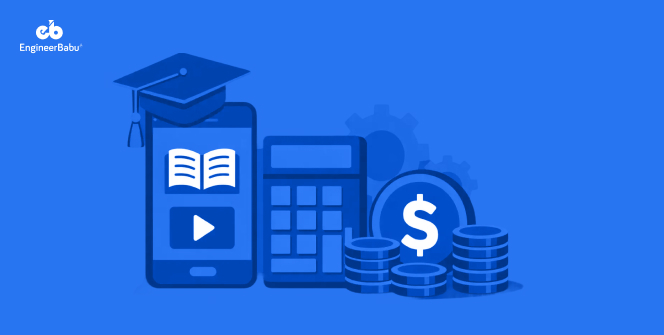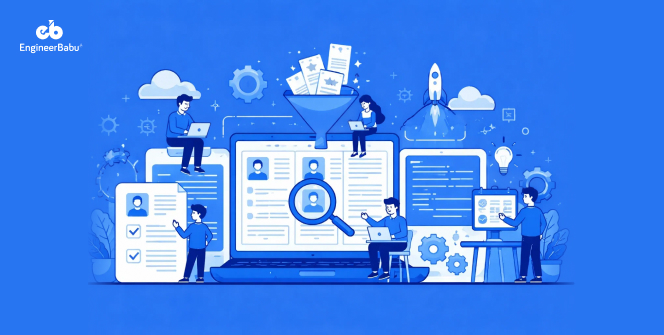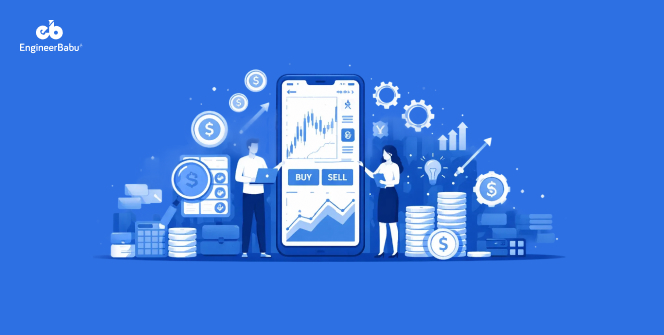AI is No Longer an Option for Mobile Apps—It’s a Necessity
Building a mobile app today isn’t just about functionality—it’s about intelligence. Users don’t just expect apps to work; they expect them to understand, predict, and personalize their experience. This shift is being driven by AI-powered mobile applications, which are rapidly transforming how businesses engage with users, optimize operations, and stay competitive.
Yet, most businesses still approach mobile app development with a pre-AI mindset—focusing on features instead of intelligence. The result?
❌ Apps struggle with engagement because they lack smart personalization.
❌ Security risks increase as threats evolve faster than traditional detection methods.
❌ Businesses lose users because their apps can’t adapt to real-time behaviors.
Here’s how the real-world shift toward AI-powered apps –
- 80% of users abandon an app after just three uses if it doesn’t meet expectations (TechCrunch).
- AI-driven personalization increases user retention by up to 400% (McKinsey).
- By 2025, over 75% of mobile interactions will be AI-powered (Gartner).
For businesses, this means one thing: AI is no longer an optional add-on—it’s the foundation of modern mobile app success. The apps that fail to integrate AI risk becoming obsolete.
This blog will break down:
✔ The key AI trends shaping mobile app development in 2025
✔ How AI is revolutionizing security, personalization, and automation
✔ What businesses need to do now to future-proof their mobile apps
Let’s explore what’s next in AI-powered mobile app development—and why your business needs to adapt now.
The Rise of AI in Mobile Applications
AI is no longer an add-on for mobile apps—it’s a necessity. With AI-optimized processors like Apple’s Neural Engine and Qualcomm’s AI-driven chips, mobile devices can now process AI tasks faster and more efficiently. This, combined with AI frameworks like TensorFlow Lite and Core ML, has made it easier than ever for businesses to integrate AI into their apps.
User expectations are also changing. Consumers demand personalized experiences, real-time adaptability, and intelligent automation. Apps that fail to offer AI-driven personalization risk high user churn and weak engagement. Security is another growing concern—with evolving cyber threats, AI-powered fraud detection and real-time behavioral monitoring have become essential.
By 2025, the AI-driven mobile app market is expected to reach $125 billion, with over 75% of smartphone interactions powered by AI. Companies like Netflix, Spotify, and Amazon already use AI for personalized recommendations, while mobile banking apps leverage AI-driven fraud detection to monitor transactions in real time.
For businesses, staying competitive means integrating AI now. As AI-driven apps set new standards in personalization, security, and automation, companies that fail to adapt risk becoming obsolete.
Top 8 AI Trends Shaping Mobile Apps in 2025
AI is revolutionizing mobile apps in more ways than ever before. From hyper-personalized user experiences to real-time fraud detection, AI-driven advancements are reshaping how businesses build and optimize their apps.
Here are the top 10 AI trends that will define mobile app development in 2025:
Now, let’s break down how these trends will shape the future of mobile app development.
Personalized User Experiences with AI
Consumers no longer want generic, one-size-fits-all mobile apps. AI-driven personalization has become the key to engagement, retention, and user satisfaction. Businesses that leverage AI to understand user behavior and deliver tailored experiences see higher conversion rates, longer session durations, and increased customer loyalty.
AI achieves this by analyzing user data in real time—tracking preferences, browsing history, and interactions to predict what a user wants before they even search for it. Streaming platforms like Netflix and Spotify use AI-powered recommendation engines to keep users engaged, while e-commerce apps like Amazon and Flipkart provide personalized product suggestions based on purchase behavior.
Beyond recommendations, AI is transforming in-app experiences. Chatbots powered by Natural Language Processing (NLP) engage users in human-like conversations, making customer support more seamless. Meanwhile, dynamic app interfaces adjust based on user habits—offering shortcuts, predictive text, and relevant notifications to make navigation faster and more intuitive.
With AI-driven personalization increasing user retention by up to 400%, businesses that fail to integrate it risk losing customers to more adaptive, intelligent apps.
Advanced Natural Language Processing (NLP) & Conversational AI
AI-powered chatbots and voice assistants are becoming smarter, more responsive, and human-like with advancements in Natural Language Processing (NLP).
Voice assistants like Siri, Google Assistant, and Alexa have paved the way, but the next wave of AI will understand emotions, tone, and user intent, offering context-aware responses instead of generic answers. AI chatbots will handle 80% of user queries, voice-based navigation will become standard, and real-time multilingual support will break language barriers for global users.
With 50% of mobile searches now voice-based and AI chatbots reducing customer service costs by 30%, apps that fail to integrate NLP will fall behind in engagement and accessibility.
How NLP is Transforming Mobile Apps:
✔ AI Chatbots for Real-Time Customer Support – NLP-powered chatbots will handle 80% of user queries without human intervention.
✔ Voice Search Optimization – More apps will integrate voice-enabled navigation to improve hands-free interactions.
✔ AI-Powered Multilingual Support – Real-time speech and text translation will make apps more accessible globally.
✔ Context-Aware Smart Replies – Apps will predict and suggest personalized responses, streamlining communication.
Predictive Analytics for Smarter User Engagement
AI-driven predictive analytics is transforming how mobile apps anticipate user behavior, boosting engagement, retention, and conversions. Instead of reacting to user actions, AI analyzes historical data, in-app behavior, and usage patterns to predict what users will do next and automate personalized experiences.
With predictive AI increasing conversion rates by up to 40% and reducing churn by 20%, businesses that fail to integrate AI-driven insights into their apps risk losing engagement and revenue.
How Predictive Analytics is Transforming Mobile Apps:
✔ AI-Powered Recommendations – Predicts user preferences for content, shopping, and entertainment.
✔ Smart Notifications & Alerts – Sends timely, relevant push notifications based on user behavior.
✔ Fraud Detection & Risk Prevention – Identifies suspicious activity and prevents fraud in finance and e-commerce apps.
✔ User Behavior Forecasting – Helps businesses understand customer intent and optimize retention strategies.
AI-Powered Security & Fraud Prevention
With cyber threats evolving rapidly, traditional security measures are no longer enough. AI-powered security uses real-time data analysis, anomaly detection, and behavioral monitoring to identify and prevent threats before they occur.
Financial apps, e-commerce platforms, and healthcare applications are already leveraging AI-driven fraud detection to monitor transactions, detect unusual behavior, and prevent unauthorized access. AI can recognize suspicious login attempts, phishing scams, and fraudulent activities faster than traditional security systems, reducing financial losses and data breaches.
AI-powered fraud detection reduces financial fraud by 50% and biometric authentication makes apps 70% more secure.
How AI-Powered Security is Transforming Mobile Apps:
✔ Fraud Detection & Prevention – Identifies unusual transactions and login attempts in real-time.
✔ Behavioral Biometrics – Uses face recognition, fingerprint scans, and voice authentication for enhanced security.
✔ AI-Powered Threat Monitoring – Continuously scans for malware, phishing attacks, and data breaches.
✔ Automated Risk Assessment – Predicts potential vulnerabilities and strengthens app security proactively.
AI in App Development – Automated Coding & Testing
AI is not only transforming mobile app functionalities but also revolutionizing the way apps are built and maintained. Developers are now leveraging AI to automate coding, debugging, and testing, reducing development time and improving app quality.
AI-powered tools like GitHub Copilot and Tabnine assist developers by suggesting code snippets, auto-fixing errors, and optimizing performance. Meanwhile, AI-driven testing frameworks automate bug detection, security vulnerability checks, and UI/UX testing, ensuring apps run smoothly across multiple devices.
With AI-powered development tools reducing coding errors by 75% and automated testing cutting deployment time by 40%, businesses that adopt AI-driven development gain a competitive edge with faster, more efficient app releases.
How AI is Transforming App Development:
✔ AI-Assisted Coding – Automates code writing, reducing development time and human errors.
✔ Automated Bug Detection & Fixes – AI predicts and resolves errors before deployment.
✔ Faster App Testing & Debugging – AI-driven testing ensures compatibility across devices and platforms.
✔ AI-Powered Performance Optimization – Continuously monitors and improves app efficiency.
Adaptive UI & UX with AI-Based Optimization
AI is redefining mobile app user interfaces (UI) and user experiences (UX) by making them dynamic, intelligent, and highly personalized. Instead of static designs, AI-powered apps adapt their interface based on user behavior, preferences, and real-time interactions, improving engagement and usability.
For example, Google’s AI-driven Material You adjusts app themes, colors, and layouts based on a user’s device settings and preferences. AI-powered fitness apps modify dashboard layouts based on workout habits, while AI in productivity apps customizes features, menu placements, and navigation for a smoother user journey.
With AI-powered adaptive UI increasing engagement rates by 35% and reducing app abandonment by 25%, businesses that fail to implement AI-driven UX risk losing users to more intuitive, responsive apps.
How AI is Transforming UI & UX in Mobile Apps:
✔ Personalized App Interfaces – UI dynamically adapts based on user habits and settings.
✔ AI-Powered Accessibility Features – Apps auto-adjust for vision-impaired or special-needs users.
✔ Predictive Gesture Control – AI enables smart touch & voice commands for seamless navigation.
✔ Real-Time UI Optimization – AI detects user frustration points and improves interactions.
AI-Powered Healthcare & Wellness Apps
AI is transforming healthcare and wellness apps by enhancing diagnostics, personalizing health recommendations, and enabling real-time monitoring. With AI-driven wearables, symptom checkers, and virtual health assistants, users now have instant access to smarter healthcare solutions.
Telemedicine apps use AI to analyze patient symptoms and suggest possible diagnoses before connecting them to a doctor. AI-powered wearables, like the Apple Watch and Fitbit, detect heart irregularities and monitor real-time vitals, helping users take preventive action. Mental health apps integrate AI chatbots that provide personalized therapy sessions, mood tracking, and stress analysis based on user inputs.
AI reduces diagnostic errors by 30%, and AI-powered fitness coaching increases user retention by 50%. Thus, businesses in the health and wellness sector must leverage AI to provide smarter, data-driven solutions.
How AI is Transforming Healthcare & Wellness Apps:
✔ AI-Powered Symptom Checkers – Predicts potential illnesses based on user inputs and medical history.
✔ Wearable Health Monitoring – Tracks heart rate, sleep patterns, and fitness levels in real time.
✔ AI Chatbots for Mental Health – Provides personalized therapy and stress management.
✔ AI in Drug & Treatment Recommendations – Suggests tailored medications and treatments based on user data.
Ethical AI & Data Privacy in Mobile Apps
As AI becomes deeply integrated into mobile apps, data privacy and ethical AI practices are becoming major concerns. Users are more aware than ever of how their data is collected, stored, and used, and businesses must prioritize transparency, compliance, and security to build trust.
AI-driven apps process vast amounts of personal data—from location tracking to behavioral insights and biometric authentication. While this enables personalized experiences and smarter automation, it also raises concerns about user consent, data breaches, and AI bias. To counter this, companies must implement privacy-first AI models, stricter compliance with regulations like GDPR and CCPA, and explainable AI systems that provide clarity on decision-making.
With 78% of users more likely to trust AI apps with clear data policies and businesses facing hefty fines for privacy violations, ensuring ethical AI usage is no longer optional—it’s a necessity.
How AI is Improving Ethical Data Use in Mobile Apps:
✔ Privacy-Preserving AI Models – Uses on-device processing & federated learning to minimize data collection.
✔ AI-Powered Anonymization – Encrypts and anonymizes sensitive user data to prevent misuse.
✔ Explainable AI & Transparency – Allows users to see how AI makes decisions in recommendations and automation.
✔ Regulatory Compliance – Ensures GDPR, CCPA, and global privacy laws are followed in AI-powered apps.
Why EngineerBabu is Your AI Mobile App Development Partner
Building an AI-powered mobile app isn’t just about adding smart features—it requires deep expertise in AI, machine learning, and mobile app development. At EngineerBabu, we help businesses leverage the latest AI trends to build scalable, secure, and high-performing mobile applications.
🚀 Why Choose EngineerBabu for AI Mobile App Development?
- Expert AI Integration – From predictive analytics to NLP chatbots, we implement cutting-edge AI solutions tailored to your business needs.
- Custom AI Models—We don’t rely on one-size-fits-all solutions. Instead, our team builds AI models that are optimized for your app’s specific use case.
- Privacy & Compliance First: We ensure that your AI-powered app complies with GDPR, CCPA, and other privacy laws, protecting your user data.
- Seamless User Experience – Our AI-driven UI/UX optimizations ensure higher engagement, personalization, and retention.
- Proven Track Record – We’ve built AI-powered mobile apps across industries, from healthcare and fintech to e-commerce and education.
Future-Proof Your Mobile App with AI – Partner with EngineerBabu Today!
📞 Get in Touch for a Free Consultation!
FAQs: AI Trends in Mobile Apps 2025
How is AI improving mobile app user experience?
AI personalizes user interactions through smart recommendations, adaptive UI, and predictive analytics, making apps more engaging and intuitive.
What industries benefit the most from AI-powered mobile apps?
AI is transforming e-commerce, healthcare, fintech, education, and entertainment, improving automation, security, and personalization.
How does AI help in mobile app security?
AI detects fraud, prevents cyber threats, and enhances biometric authentication, ensuring stronger security and data protection.
What is Edge AI, and how does it impact mobile apps?
Edge AI processes data on-device instead of the cloud, reducing latency, improving privacy, and enabling real-time AI-driven actions.
Can AI help in mobile app development?
Yes! AI automates coding, bug detection, and testing, speeding up development cycles and improving app quality.



